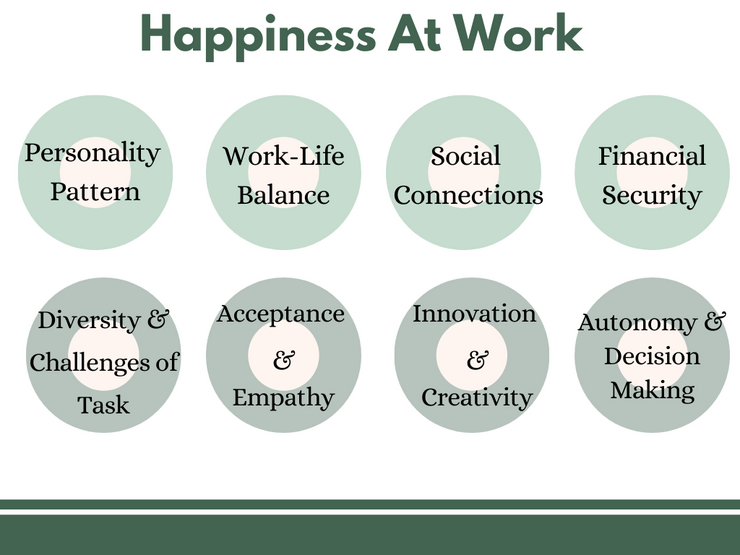 (1).png)
Breaking Free from Imposter Syndrome
Breaking Free from Imposter Syndrome: A Guide for Modern Professionals
Have you ever felt like a fraud at work, despite your accomplishments? You're not alone. In the relentless pursuit of professional excellence, many high achievers find themselves caught in a fascinating paradox: the more they accomplish, the more intensely they grapple with feelings of inadequacy. This phenomenon, known as imposter syndrome, affects an astounding 82% of professionals at some point in their careers.
The Paradox of Success
Picture this: You've just landed a major project, earned a promotion, or received glowing feedback from your team. Yet instead of celebrating, you're haunted by a nagging thought: "I just got lucky." or "Soon they'll realize I'm not as qualified as they think." This is imposter syndrome at work, and it's more common than you might think.
Recognizing the Signs
Imposter syndrome can be surprisingly subtle, often hiding behind a facade of high achievement. Here are the key signs to watch for:
-
Dismissing Success: Attributing achievements to luck rather than skill
-
Perfectionism Gone Wrong: Living in constant fear of making mistakes
-
Silent Struggles: Holding back in meetings, reluctant to share ideas
-
Overcompensation: Working excessive hours to "prove" your worth
-
Praise Resistance: Difficulty accepting compliments or recognition
The Hidden Cost to Your Career
While imposter syndrome might feel like a personal battle, its impact reaches far beyond individual confidence. Consider these professional consequences:
-
Missed opportunities for advancement
-
Increased stress and potential burnout
-
Reduced creativity and innovation
-
Hampered team collaboration
-
Lower job satisfaction
Understanding the Root Causes
1. The Perfectionism Trap
Many high achievers set impossibly high standards for themselves. Like a software developer expecting bug-free code on the first try, these unrealistic expectations fuel feelings of inadequacy.
2. Cultural and Societal Pressures
Certain groups face additional challenges:
-
Women in male-dominated fields
-
Minorities in leadership positions
-
First-generation professionals
-
Career changers entering new industries
3. Workplace Culture
Competitive environments can either nurture or exacerbate imposter feelings. When individual achievement overshadows collaboration, self-doubt often flourishes.
Breaking Free: Practical Strategies
1. Recognize and Acknowledge
Action Step: Start a "wins journal" to document your achievements and positive feedback. Review it regularly to combat self-doubt with concrete evidence of your success.
2. Reframe Your Internal Dialogue
3. Embrace Growth Mindset
-
View challenges as learning opportunities
-
Celebrate progress, not just perfection
-
Accept that expertise develops over time
4. Build Your Support Network
-
Find a mentor who understands your journey
-
Connect with peers facing similar challenges
-
Share experiences in professional groups
How Organizations Can Help
Companies play a crucial role in combating imposter syndrome. Effective organizational strategies include:
-
Create a Supportive Culture
-
Normalize discussing challenges and doubts
-
Celebrate diverse approaches to problem-solving
-
View mistakes as learning opportunities
-
-
Implement Structured Support
-
Offer mentorship programs
-
Provide regular, constructive feedback
-
Host workshops on managing self-doubt
-
-
Foster Inclusive Leadership
-
Train managers to recognize and address imposter syndrome
-
Encourage diverse perspectives
-
Create safe spaces for vulnerability
-
Moving Forward with Confidence
Remember, experiencing imposter syndrome doesn't mean you're actually an imposter—it often signals that you're pushing yourself to grow. By recognizing these feelings and implementing strategic responses, you can transform self-doubt into a catalyst for authentic professional development.
The Path to Authentic Success
Overcoming imposter syndrome isn't about eliminating self-doubt entirely—it's about developing a healthier relationship with success and failure. As you implement these strategies, focus on:
-
Acknowledging your genuine achievements
-
Embracing continuous learning
-
Contributing your unique perspective
-
Supporting others who might be struggling









